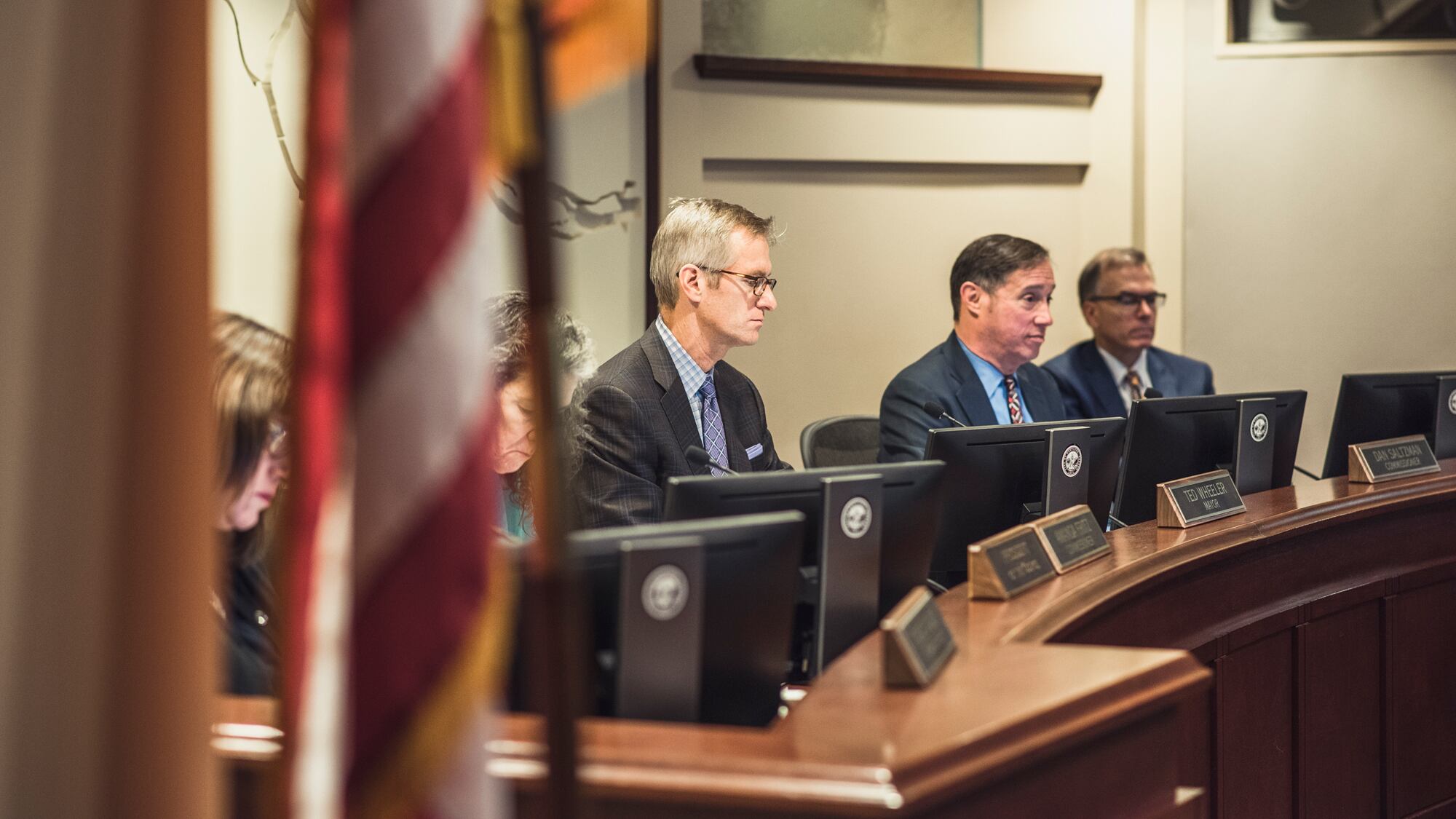Mayor Ted Wheeler today announced plans to increase the business license tax by an estimated $15.3 million as part of a proposal to increase the number of Portland police officers by 58.
Wheeler is also proposing to boost the city's contribution to the Joint Office of Homeless Services by about $3 million, though it was not immediately clear how much, if any of that, is a transfer of funding and services from an existing program at the Office of Management and Finance.
The business license tax, which is 2.2 percent of a business' net income, is the second largest source of money for the city's general fund, after property taxes. In the 2016-17 budget, the tax brought in $118 million.
This proposal would increase the tax to 2.6 percent and increase the deduction for the owner's compensation from $103,000 to $125,000 to give smaller businesses a break.
Wheeler was facing pressure from city commissioners to increase the business tax in to be able to afford a bigger budget for the Portland Police Bureau.
Under the city's commission form of government, the mayor proposes a budget, but three dissenting commissioners could essentially rewrite the proposal. It was unlikely Wheeler was going to get the votes for more police officers without a tax increase.
That's because the city would likely need to cut the Portland Parks and Recreation Bureau budget to fund additional cops. In particular, the council saw heated public opposition to closing three community centers.
The proposed tax hike comes as the federal government has decreased taxes on businesses.
The Portland Business Alliance expressed support for the tax increase.
"The Alliance has expressed willingness to step up on this tax increase in order to help address Portland's top issue, homelessness, which impacts businesses and livability throughout the city," says president and CEO Sandi McDonough. "Importantly, the additional revenue will be targeted toward measurable outcomes."

